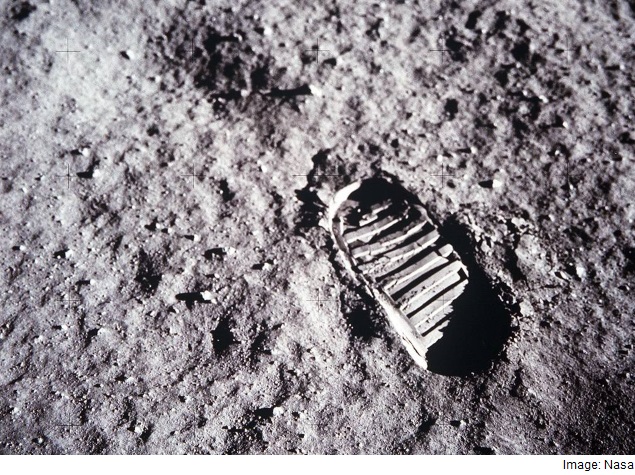- Home
- Science
- Science News
- Japanese Firm Looks to Explore Moon Surface for Minerals
Japanese Firm Looks to Explore Moon Surface for Minerals

The firm, iSpace, plans to sell the information to mining companies, EFE news agency reported.
"We will find out where rare-earth elements are distributed by analysing the strata and sand using cameras on 10 to 100 rovers," iSpace founder and CEO Takeshi Hakamada told Japanese daily Nikkei on Monday.
The company, founded in 2013, hopes to send its first rover to the moon by the second half of 2016, aboard a rocket built by US aerospace company SpaceX.
The company also plans to take part in the Goggle Lunar Xprize, which has a cash award of $20 million (roughly Rs. 127 crores), where it will compete with 15 other companies to drive their rover for 500 metres on the surface of the moon and send videos and photos back to the Earth.
The prize money amounts to more than double the initial investment of some $8 million (roughly Rs. 50 crores) that iSpace needs to launch its rover in 2016.
Winning the competition would also be a good marketing exercise for the company to begin sending exploration vehicles before 2023, according to Hakamada.
For the Google competition, the iSpace team is planning to explore an area of the moon known as "Lacus Mortis" (in Latin, Lake of Death) in a vehicle, developed by experts from the Tohoku University and other individual volunteers.
Heading the team is Professor Kazuya Yoshida who has already worked on creating another exploration mission for the Japanese space agency called Hayabusa-2.
For the latest tech news and reviews, follow Gadgets 360 on X, Facebook, WhatsApp, Threads and Google News. For the latest videos on gadgets and tech, subscribe to our YouTube channel. If you want to know everything about top influencers, follow our in-house Who'sThat360 on Instagram and YouTube.
Related Stories
- Samsung Galaxy Unpacked 2025
- ChatGPT
- Redmi Note 14 Pro+
- iPhone 16
- Apple Vision Pro
- Oneplus 12
- OnePlus Nord CE 3 Lite 5G
- iPhone 13
- Xiaomi 14 Pro
- Oppo Find N3
- Tecno Spark Go (2023)
- Realme V30
- Best Phones Under 25000
- Samsung Galaxy S24 Series
- Cryptocurrency
- iQoo 12
- Samsung Galaxy S24 Ultra
- Giottus
- Samsung Galaxy Z Flip 5
- Apple 'Scary Fast'
- Housefull 5
- GoPro Hero 12 Black Review
- Invincible Season 2
- JioGlass
- HD Ready TV
- Laptop Under 50000
- Smartwatch Under 10000
- Latest Mobile Phones
- Compare Phones
- Moto G15 Power
- Moto G15
- Realme 14x 5G
- Poco M7 Pro 5G
- Poco C75 5G
- Vivo Y300 (China)
- HMD Arc
- Lava Blaze Duo 5G
- Asus Zenbook S 14
- MacBook Pro 16-inch (M4 Max, 2024)
- Honor Pad V9
- Tecno Megapad 11
- Redmi Watch 5
- Huawei Watch Ultimate Design
- Sony 65 Inches Ultra HD (4K) LED Smart TV (KD-65X74L)
- TCL 55 Inches Ultra HD (4K) LED Smart TV (55C61B)
- Sony PlayStation 5 Pro
- Sony PlayStation 5 Slim Digital Edition
- Blue Star 1.5 Ton 3 Star Inverter Split AC (IC318DNUHC)
- Blue Star 1.5 Ton 3 Star Inverter Split AC (IA318VKU)

















